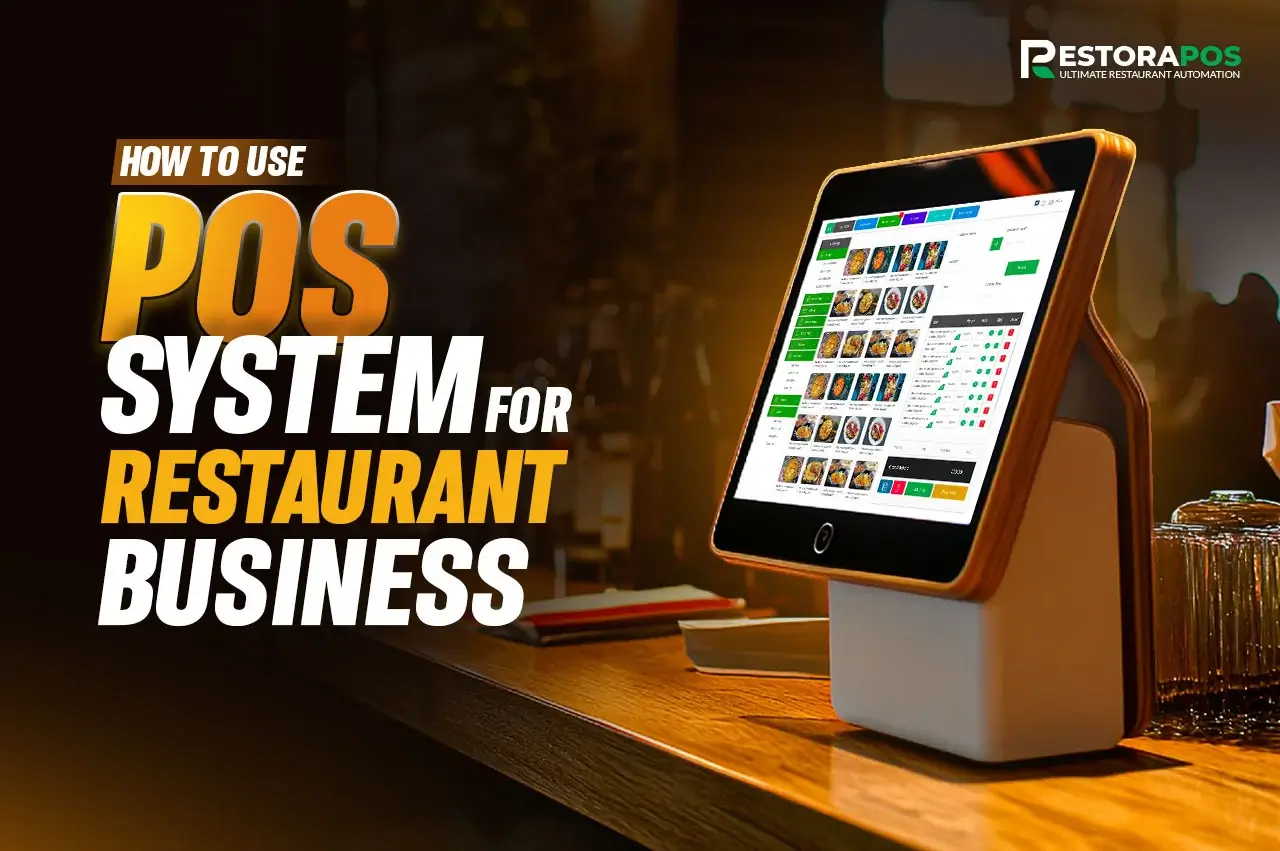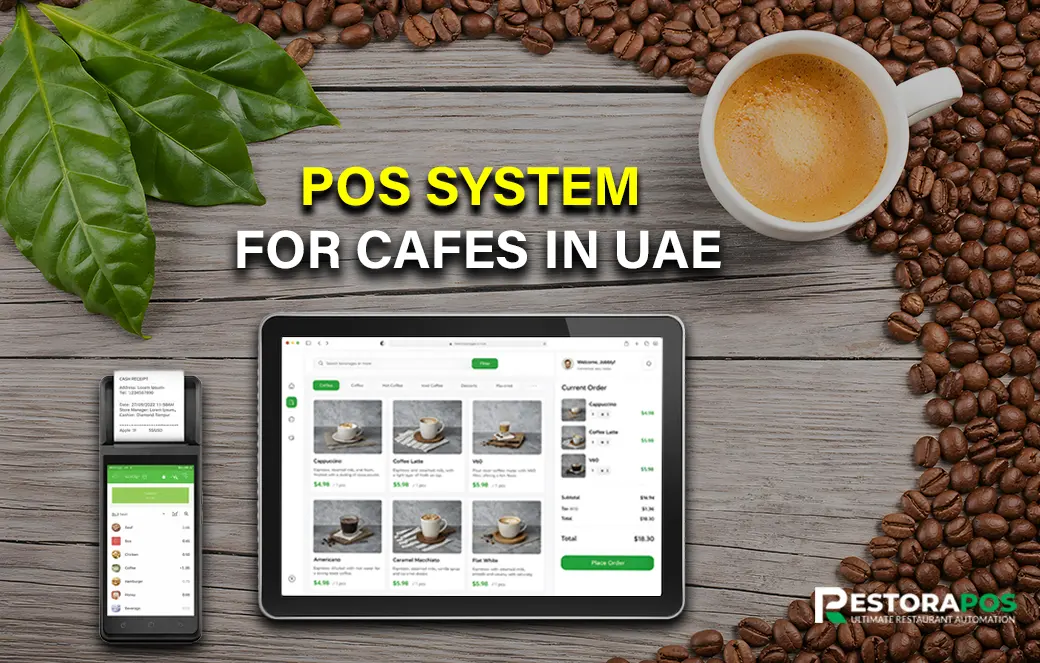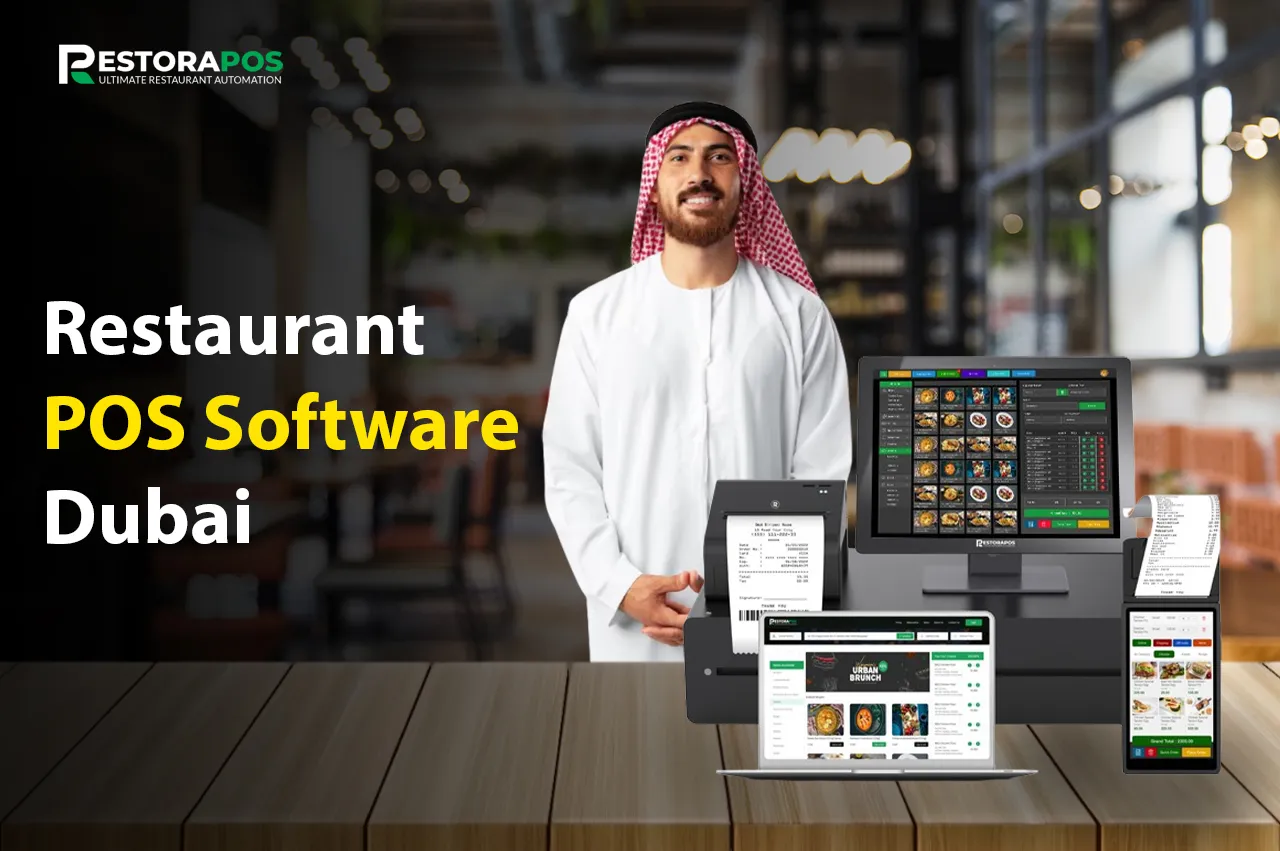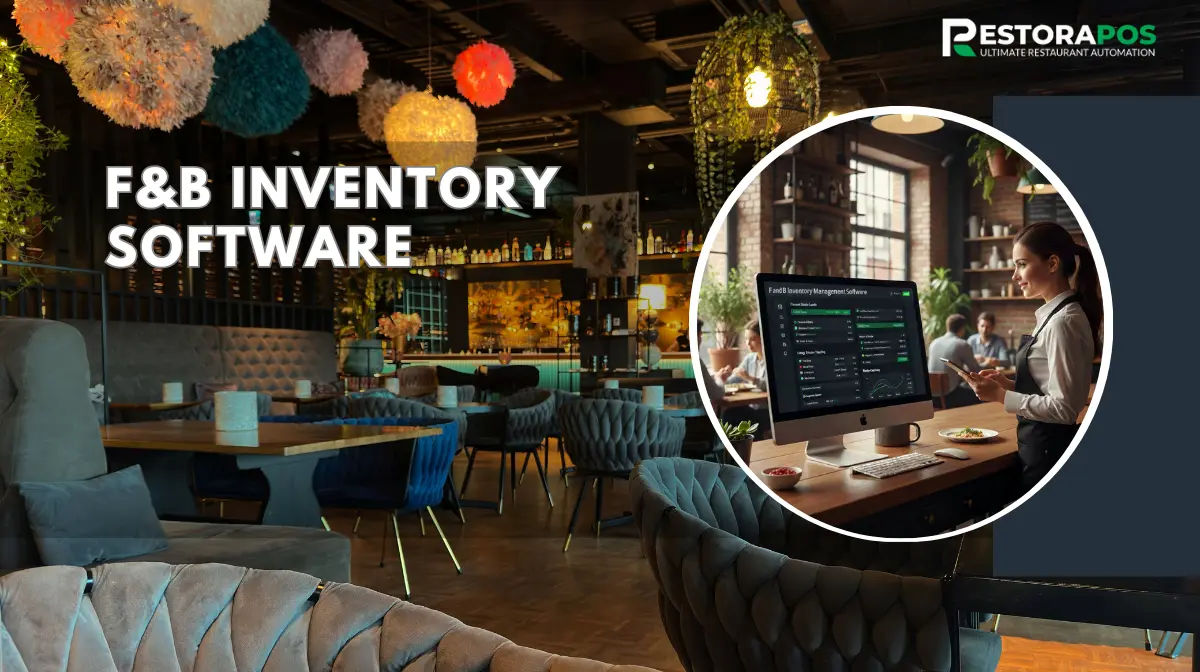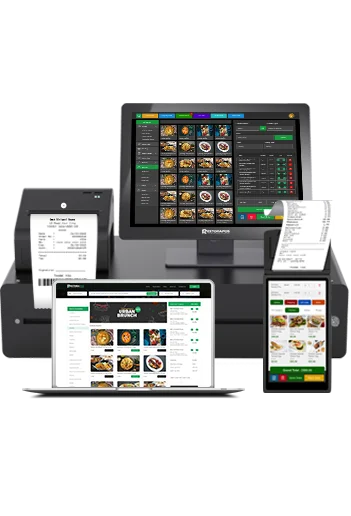Why Food Safety is Important for Restaurant Business

Running a restaurant can be extremely difficult. If you're a restaurant owner, then you know that food safety is of the utmost importance. In addition to food costs, labor, and rent, you also have to worry about food safety. After all, your reputation depends on it. Food safety is important because not only is it essential to ensure the safety of your customers, but it's also essential to protect your business from any potential legal issues. If a customer gets sick after eating at your establishment, it could mean big trouble for your business. That's why making food safety a top priority in your restaurant is so important. In this article, we will discuss the importance of food safety. So, whether you're just starting a restaurant business or running restaurants for years, stick together with us till the end.
What is Food Safety?
Food safety is the set of practices designed to prevent foodborne illness. This can include everything from proper food handling and preparation techniques to food storage and transportation. Food safety is extremely important in the restaurant business because if food is not handled properly, it can lead to serious health consequences for customers.
And if any customer falls ill after consuming food in your eatery, you might have to face legal issues. This can impact your restaurant’s reputation. People might start to avoid having food from your restaurant. So in order to run your restaurant business smoothly and have your reputation unharmed, you have to be sincere about food safety as a restaurant owner. At the same time, you must train your restaurant employees to maintain food safety strictly.
Why is Food Safety Important?
Food is a must for humans to survive. People get necessary nutrients from food. That’s why food safety is important. Because contaminated foods are very harmful to human health. Contaminated food does more harm than good. People get sick from consuming contaminated food. In some cases, this sickness can get so severe that it can lead to the death of the consumer. Food safety is also related to ensuring more profit and reducing waste in the food business. Food safety also results in a clean environment. So food safety is a must. The five importance of food safety is broadly described below.

-
Avoid Foodborne Illness
Food safety is important because if food safety is maintained properly, people can be protected from food-borne illnesses and food-related injuries. Food is consumed for the reason to get nutrition benefits, not the foodborne illness. The biggest cause of foodborne illness is food contamination. So food must be handled with maximum caution, in order to maintain food safety and protect food from getting affected by any harmful things which can lead consumers to health consequences.
-
Avoid Foodborne Deaths
If food safety is not maintained properly, consumers can get the foodborne disease. Some food-borne diseases are so severe that they can lead to the death of the consumer. This is the opposite of the main reason for food consumption. Food is consumed so that humans may remain alive. If food consumption becomes the reason for people's death then human existence will be in danger. This is another major reason food safety is important.
-
To Ensure More Profit
If food safety is not maintained, food may become contaminated or affected by many different pathogens or become rotten. This can be a reason for health problems as well as it can affect the food business. The food market is the largest market and the food business is the oldest business of its time. Foodborne illness is a major threat to the food business. And if the food market is affected, it can result in the rise and fall of all other businesses across the world. So food safety is important to ensure more profit in the food business. Because when you will maintain food safety, there is no way foodborne illness can affect your business. And you can make more profit in business.
-
To Reduce Waste
Food safety is important because maintaining food safety can result in less food waste. If your organization maintains food safety, then it can serve more people. It will lead to more profit and also it can reduce the cost of your restaurant. And when the cost becomes less, profit becomes high. Food safety means more profit and less waste.
-
Environment Safety
Food safety should be maintained to protect the environment as well. Now if you ask how food safety and environmental pollution are related, then here is an example. Some farmers use much more fertilizer than necessary in their fields to ensure the growth of more crops. Some farmers even use too much poisonous pesticides. But this does more harm than good. These poisonous chemicals get washed away by rain and fall in rivers and ponds. This results in water pollution as well as environmental pollution.
Sometimes too much use of pesticides kills useful insects like bees. In some cases, poisonous pesticides remain on foods like vegetables and fruits and become the cause of health issues for consumers. If food safety is maintained properly then these severe problems can be avoided. That’s why food safety is important.
Importance of Food Safety in Restaurants
Nowadays people prefer to eat at restaurants rather than prepare food at home. Restaurants are not just places for having food. But also a place to celebrate special events with friends and family. Many people eat at restaurants every day. That's the reason restaurant businesses should take food safety protocols seriously. The importance of food safety in restaurants is extremely necessary. So look at the broad description of some major importance of food safety in restaurants below.

-
Negative Review
If any customer gets food poisoning or becomes sick after eating at your eatery then be ready to face criticism. Nowadays, sharing the experience of having food in a restaurant or giving reviews is easier than ever. Customers can share their bad experiences or give their negative reviews anywhere from social media to restaurant websites. And a negative review can affect the reputation of your restaurant.
At the same time if your restaurant fails to serve customers appropriately your restaurant might deserve it. Many people avoid visiting a new restaurant because they saw a negative review of that place on the internet. That means if your restaurant gets negative it loses its potential customers. So maintaining food safety is very important for restaurants.
There are a lot of ways to get positive feedback for your restaurant and you have to know about the importance of social media for restaurant business promotion.
-
Unexpected Inspections
In many states, random inspections take place in every restaurant within that state twice a year or more. In some cases, your restaurant might face an unexpected inspection because a customer might have complained about your restaurant to the health department. If your restaurant doesn’t follow food safety protocols and it is caught in one of these unexpected inspections then your restaurant might face legal consequences. This is another major reason your restaurant must maintain food safety protocols.
-
Avoiding Lawsuits
Restaurants are inspected regularly by health departments in almost every state of the country. These inspections are random and unexpected. The health department doesn’t send your restaurant an invitation card before visiting your place. So your restaurant can face a random inspection any day and anytime. And being a restaurant owner you might not have any time or any power to prevent lawsuits if the inspections go wrong. But these lawsuits can cost you a big fortune. And also a bad image. So it is crucial to maintain food safety in restaurants.
-
Maintaining Good Reputation
Food safety is important to maintain the good reputation of your restaurant. If your restaurant maintains food safety regulations, the potential of getting a bad review becomes much less. At the same time, your restaurant can avoid potential lawsuits which can cause a bad image of your restaurant. That’s how you can maintain a good reputation by following food safety regulations properly from the day of the grand opening of your restaurant.
-
Cost Reduction
Maintaining food safety in restaurants is obvious. Maintaining food safety has a lot of benefits including cost reduction. For example, if food is stored and also handled properly it can reduce waste. Reducing waste leads to cost reduction. At the same time when your restaurant will maintain food safety protocols effectively, it won't get any lawsuits. Lawsuits cost a large amount of money. By maintaining food safety protocols you can save that large amount of money by avoiding any kind of lawsuits.
How to Maintain Food Safety in Restaurants
The restaurant business is a huge part of the food business. The restaurant business is run by serving delicious food to its consumers. Food that is served to the customer must be safe and not make consumers sick. Maintenance of food safety is very important for restaurants to avoid losing customers and avoid getting any unexpected lawsuits. Restaurant food safety guidelines should be maintained strictly. Because food safety is important to ensure a good reputation for your restaurant. Food safety tips for restaurants are given below.

1. Wash Hands
Most diseases spread through hands. So if hands are washed properly before food preparation or any other work related to it such as serving, food safety can be ensured. Restaurants should ensure every employee is properly washing their hands. If hands are not properly washed, then no matter how appropriately other food safety regulations are maintained, it won’t work effectively. Hand washing rules are given below.
- Every employee must wash their hands properly before starting their shift.
- Washing hands means scrubbing both hands with soap. It also includes fingernails and lower arms.
- Employees have to wash their hands properly before switching tasks.
- Employees must wash their hands twice after using the restroom.
- Wash hands after coughing or sneezing.
- Employees must wash their hands if they touch their hair, face, nose, or ear. Also if they scratch any part of their body or blow their nose.
- Wash hands after handling raw meats and fish.
- Wash hands after managing waste and cleaning.
- Wash hands strictly after touching light switches, door handles, phones, and money.
- Every time after washing hands employees must dry their hands with towels.
- Each time after washing hands employees have to put on new disposable gloves.
- Every employee should be adequately trained on how to appropriately wash hands and when to wash hands.
- Owners and restaurant managers should strictly monitor whether employees are properly maintaining hand-washing policies.
2. Effective Use of Disposable Gloves
Disposable gloves play a very important role in food safety. Gloves create a barrier between your hands and food. It protects your hand from spreading any bacteria, viruses, pathogens, diseases, etc to food.
- A pair of gloves must not be used more than once. You cannot wash and use the same pair of gloves again. It must be thrown away after a single use.
- A pair of gloves must not be used for more than 4 hours.
- An employee must change gloves before switching tasks.
- An employee must change gloves if he or she touches hair, face, or any other part of the body.
- An employee must change the gloves if the gloves become dirty or get torn.
- Always make sure to wash both hands before putting on gloves.
3. Personal Hygiene
Every employee in the restaurant whether they are working in the dining area or the kitchen must maintain personal hygiene to ensure the effective implementation of food safety. Every employee must follow some protocols.
- Every employee must wear head caps to cover their hair.
- Every employee has to wear clean and hygienic clothes.
- Every employee must wear clean footwear to avoid spreading dirt and derbies through their feet. Make sure to clean or wash both feet with water and soap and dry them with a towel before putting on the footwear.
- Every employee must wear gloves on both hands. Wash both hands with soap and dry them with a towel before putting on gloves.
- Every employee must avoid wearing wristwatches or any kind of jewelry.
- No employee can smoke in the kitchen.
- No employee should eat while handling food.
- Don’t touch any ready-to-eat foods directly with your hands without wearing gloves.
4. Cleaning and Sanitizing
Cleanliness both in the kitchen and the dining space must be maintained in restaurants. Everything should be sanitized after cleaning to ensure double protection and the spread of any disease. Let’s look at how to clean and sanitize both the kitchen and dining area of a restaurant below.
a. Kitchen Area
The kitchen is where food is cooked and stored. Cleanliness is extremely important in a restaurant kitchen. Because most of the outbreak happens in restaurants, it starts in the restaurant's kitchen. So both cleaning and sanitizing after cleaning are important in a restaurant's kitchen.
- Firstly you need to clean everything in the kitchen like surfaces, utensils, tools, ovens, fridges, cabinets, etc. It is essential to clean with both water and soap to clean food spills and wastes, dirts and derbies, viruses and bacterias, pathogens and diseases, etc. Afterward, it is very important to sanitize.
- Secondly, it is important to clean the kitchen after closing the restaurant and before opening the restaurant. It is also important to clean the kitchen every four hours. Because four hours are enough for bacteria to become harmful at an alarming rate.
- Thirdly it is also very important to be cautious in the kitchen to avoid any cross-combination happening. Cross combination is a harmful process of spreading viruses, bacteria, pathogens, and disease through kitchen surfaces, utensils, tools, or equipment unknowingly. Be sure to wash and sanitize surfaces, utensils, tools, or equipment after cutting and before preparing raw meat, poultry, fish, and seafood. Raw meat, poultry, fish, and seafood must be cleaned perfectly after cutting and before preparing.
- Finally, do not use the same unwashed knife, cutting board, or any other utensils, or even use the same surface which is unwashed or uncleaned after being used for raw meat and fish to cut vegetables or fruit. Always make sure to wash vegetables and fruits perfectly.
b. Dining Area
The dining area is where customers are served. Customers see and judge the whole restaurant by the look of the dining area. So cleanliness of the dining area is as important as the kitchen.
- Every table must be cleaned right after a customer leaves.
- Staff must remain cautious to avoid any unexpected spills and if any unwanted accident happens, any staff nearby must clean immediately.
- The dining area must be cleaned regularly after the closing and before the opening of the restaurant.
5. Effectively Storing Foods
Inventory management or effectively storing foods is important to maintain food safety. Because if food is not stored properly it can become rotten or worse contaminated by different types of viruses, bacteria, pathogens, or diseases.
- The place where dry food is stored has to be cleaned and sanitized regularly and kept dry to avoid the growth of any bacteria, viruses, pathogens, or diseases.
- The place where dry foods are stored must be pest free.
- Stored dry foods must have a label on them to track the expiry date.
- Food items must be preserved at the right temperature.
- Raw meat and fish must be stored in the refrigerator.
- Foods should be labeled and stored in the refrigerator to keep track of expiry dates.
- Refrigerators must have alarms that ring if the door is kept open for a long time or the temperature goes up to a level where raw fish and meat cannot be stored due to power cuts.
- Referagitors must be backed up if the power is cut for a long time.
- You must ensure there are no pests or pert nests inside the refrigerator.
- Refrigerators must be cleaned regularly.
There are a lot of ways to manage your restaurant inventory and keep your food safe in the store or inventory.
Foodborne Illness Statistics Worldwide

- The Centers for Disease Control and Prevention (CDC) reports that each year, around one in every six persons in the United States gets ill due to consuming contaminated foods.
- In the United States, foodborne diseases are responsible for the yearly sickness of 48 million people.
- Every year in the United States, foodborne illnesses result in the hospitalization of 128,000 individuals and the deaths of 3,000 people.
- 600 million cases of foodborne illness were reported each year throughout the world.
- Each year, foodborne illnesses were responsible for the deaths of 420,000 people worldwide. [Source]
Conclusion
Food safety is important for the restaurant business at a higher rate. So if you are a restaurant owner make sure to maintain food safety accurately. Train your employees to maintain food safety and strictly monitor every aspect of your restaurant to ensure food safety is maintained properly in your restaurant. The popularity of a restaurant depends on the maintenance of food safety besides the delicious food, outstanding decoration, and good service. Because when food safety is maintained properly, it can also save your restaurant from getting lawsuits and also help your restaurant maintain a good reputation.

